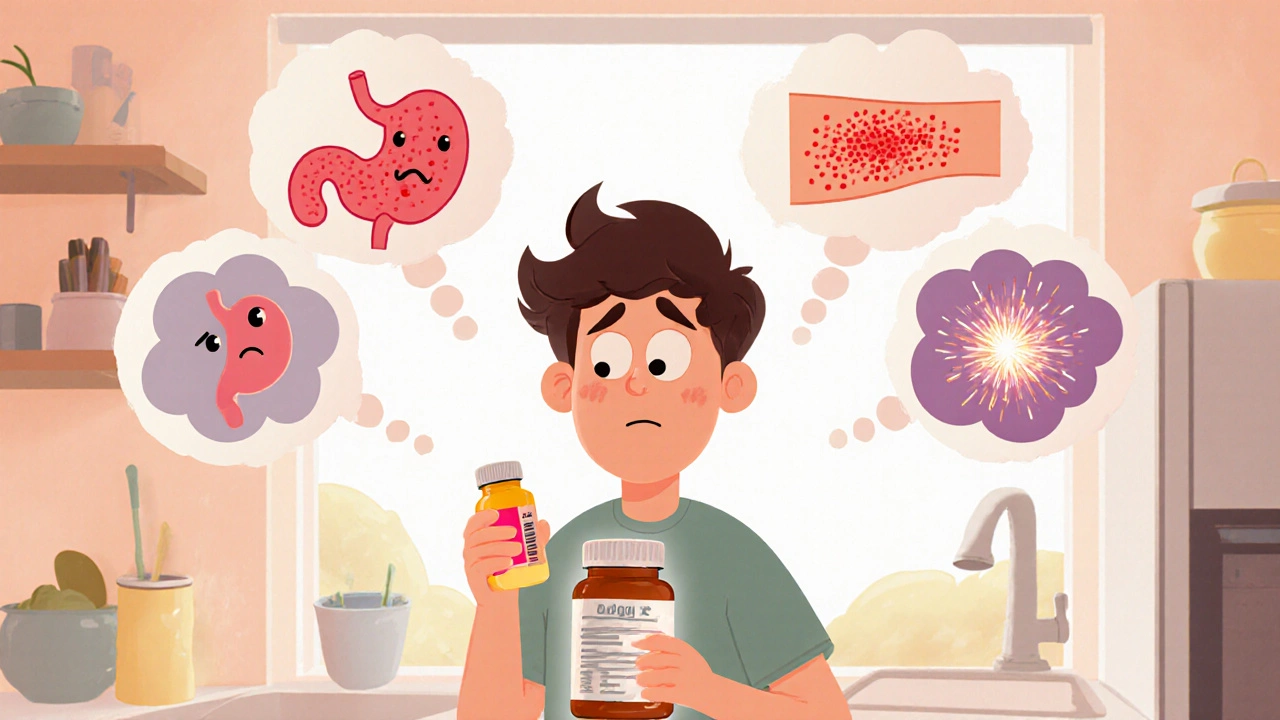Drug Allergy: Symptoms, Triggers, and What to Do When Your Body Reacts
When your body sees a medicine as a threat, it can launch a full-scale immune response — that’s a drug allergy, an immune system reaction to a medication that can range from mild rash to life-threatening shock. Also known as medication hypersensitivity, it’s not just a side effect — it’s your body attacking something meant to help you. Unlike nausea or drowsiness, which are predictable pharmacological effects, a true drug allergy involves your immune system producing antibodies. This means the next time you take that drug — even in tiny amounts — your body may overreact, sometimes with dangerous results.
Some of the most common triggers include penicillin, a widely prescribed antibiotic that causes allergic reactions in up to 10% of people, sulfa drugs, used for infections and sometimes in diabetes meds, and NSAIDs, like ibuprofen or aspirin, which can trigger breathing issues or hives in sensitive people. Cross-reactivity is real too — if you’re allergic to one penicillin, you might react to others in the same family. Even drugs you’ve taken safely before can suddenly trigger a reaction. Your immune system doesn’t always follow logic.
Symptoms can show up fast — within minutes — or take days. A rash, itching, or swelling might seem minor, but if you feel your throat tightening, your lips turn blue, or your heart starts racing, that’s anaphylaxis, a full-body emergency that needs immediate treatment with epinephrine. Many people mistake a drug allergy for a virus or food reaction. But if you’ve had a reaction after taking a new pill, shot, or IV, it’s worth documenting. Keep a list of every drug you’ve reacted to, including the symptoms and when they happened. Share it with every doctor, pharmacist, and ER you see.
Not every bad reaction is an allergy. Some people get stomach upset from antibiotics, or dizziness from blood pressure meds — those are side effects, not allergies. But confusing the two can be dangerous. If you think you’re allergic to penicillin, you might be given a stronger, more expensive, or riskier drug instead. Many people who believe they’re allergic to penicillin turn out to have outgrown it or were never allergic to begin with. Testing can clear that up.
What you’ll find here isn’t just theory. These are real stories, real risks, and real solutions from people who’ve been there. You’ll read about how antihistamines can backfire when mixed with other sedating drugs, how some medications trigger rare but deadly blood disorders, and how to tell the difference between a harmless itch and a sign your body is fighting back. We cover what to do if you react, how to communicate your allergies clearly, and which drugs to avoid if you’ve had one reaction before. No fluff. No guesswork. Just what you need to stay safe when you take medicine.

